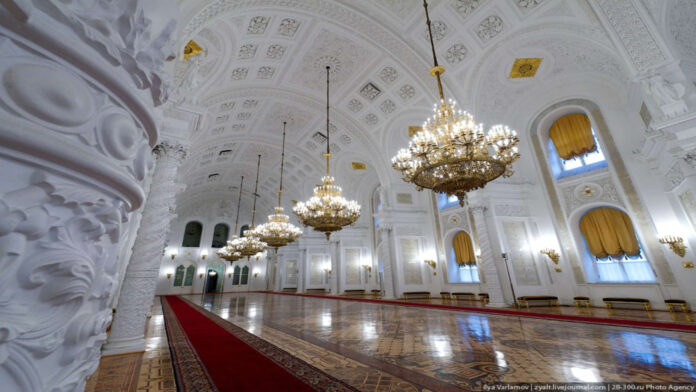
Putin mobilizes and the Russians go abroad
On 7 October Putin will turn 70. He has celebrated himselft in advance, thanks to the illegal annexation of 1/5 of Ukraine’s territories. He has also been kind with the administration’s hawks, who would like to use the country’s full war potential to outwit the Ukrainian army. Anyway, the results of the so-called “partial mobilization” was that a few hundred thousand Russians flew from the country, an event that tells us more about the structure of the former Soviet society.
The pact between the Kremlin and good post-Soviet society is broken
As the historian of modern Russia Andrei Kolesnikov explains, there is a kind of silent agreement between Tsar Vladimir and the middle bourgeoisie of the cities of European Russia. After the chaotic years of the Yeltsin era, it demanded safety on the streets, minimum efficiency in essential social services and no interference by the state in the private life of citizens. The oligarchs – friends and enemies of the dictator – wanted to steal, mess with Western businessmen, living like nabobs, changing laws, declaring wars, and they could do it easily. Nobody would have protested. That’s all.
For this reason the cannon fodder strengthening Ukraine consisted of poor ethnic minorities of Asian Russia, Chechen and Syrian guerrillas, freed and enlisted prisoners, mercenaries of the Wagner battalion.
The reality of a distant war bursts into the Russian citizen’s daily newspaper
After seven months of failure, Putin realized that it would be impossible to win the war by continuing this way. Hence the call to arms. So the perception of the conflict has changed. It is a really easy matter to see the war on TV while sipping tea and sitting on the sofa in the living room. Actually, you should be ready to throw yourself into a muddy or icy trench to be among the first actors of this tragic representation.
The official narrative is far from being convincing and the protest comes out into the open.
At this point the limits of propaganda become clear. It is easy to transform defeats into “repositioning” or “reorganization of troops in the aim of the final assault”, or so. But if you are asked to shed your blood for an incomprehensible, your mind changes immediately. Putin is sawing the legs of the throne he had built and from which he has been issuing orders for 22 years. And we don’t know if there are other alternatives.
Lo zar Vladimir Putin mobilita e i russi se ne vanno all’estero
Il 7 ottobre Putin compirà 70 anni e si è fatto in anticipo un regalo sbagliato, ovvero l’annessione illegale di 1/5 del territorio dell’Ucraina. Ha fatto anche qualche concessione ai falchi dell’amministrazione, che vorrebbero usare tutto il potenziale bellico del Paese per avere ragione dell’esercito ucraino. Ma la cosiddetta “mobilitazione parziale” ha avuto come effetto la fuga di qualche centinaio di migliaia di russi dal Paese, evento che illumina finalmente la struttura della società ex sovietica.
Si rompe il patto fra il Cremlino e la buona società postsovietica
Come spiega lo storico della Russia moderna Andrei Kolesnikov, esiste una specie di accordo silenzioso fra lo zar Vladimir e la media borghesia delle città della Russia europea. Dopo gli anni caotici dell’era Yeltsin essa chiedeva sicurezza nelle strade, efficienza minima nei servizi sociali essenziali e non ingerenza dello stato nella vita privata dei cittadini. Se gli oligarchi – amici e nemici del dittatore – volevano rubare, intrallazzare con i faccendieri occidentali, vivere da nababbi, modificare le leggi, dichiarare guerre, etc. potevano farlo tranquillamente. Nessuno avrebbe protestato. Ma nulla di più.
Per questo la carne da cannone inviata in Ucraina era costituita da minoranze etniche povere della Russia asiatica, da guerriglieri ceceni e siriani, da detenuti liberati e arruolati, da mercenari del battaglione Wagner.
La realtà di una guerra lontana irrompe nel quotidiano del cittadino russo
Ma dopo sette mesi di insuccessi Putin ha capito che non sarebbe stato possibile vincere la guerra continuando così. E quindi è arrivata la chiamata alle armi. La percezione del conflitto è cambiata. Già, perché una cosa è vedere la guerra in TV sorseggiando the seduti sul divano del salotto, ben altro è sentirsi dire di tenersi pronti a buttarsi in una trincea fangosa o ghiacciata per essere primi attori di questa tragica rappresentazione.
La narrazione ufficiale del conflitto non convince e la protesta verso lo zar Vladimir viene allo scoperto
A questo punto i limiti della propaganda diventano palesi. Va bene trasformare le sconfitte in “riposizionamenti” o in “riorganizzazione delle truppe in vista dell’assalto finale”, e altre formule simili. Ma se si chiede di versare il proprio sangue per una guerra che pochi capiscono, allora è diverso. Così Putin sta segando le gambe del trono che aveva costruito e dal quale ha impartito ordini per 22 anni. E non sappiamo se abbia altre alternative.
Leggi anche: Escalation in Ukraine/ Falsi referendum e fuga dalla Russia







